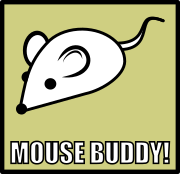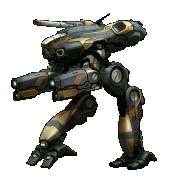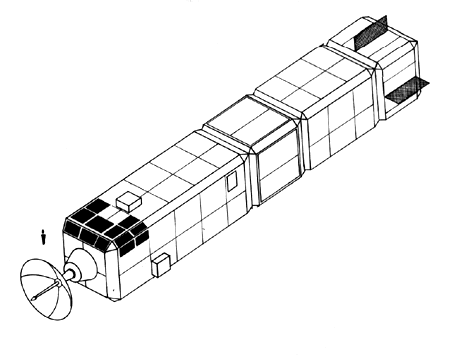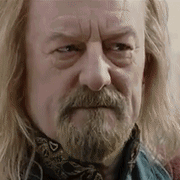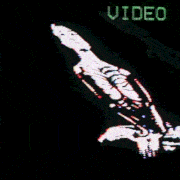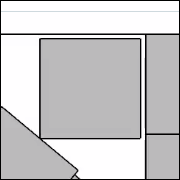|
Guys, I have font problems. Anyone have any suggestions for better font combos? Current choices are Montserrat (which I love, but maybe not here) and Orator STD (which I hate, but couldn’t replace with anything that looked better after a number of tries). I’m basically stuck with choosing what’s available on Google Fonts, so I’m limited. Considering just writing my own letters, for the title at least. I’m truly terrible at graphic design. I just can’t do it  Here’s the cover: 
|
|
|
|

|
| # ? Apr 19, 2024 17:38 |
|
KrunkMcGrunk posted:Holy poo poo that's a lot. I assure you that of those 10 posts, five have been there for multiple years ;-)
|
|
|
|
I'm getting quotes for cover art and interior layout for my memoir about my time in the military.
|
|
|
|
Comment on/destroy my blurb please. Blackbird and Memory A terraforming accident has ruined the distant colony world Chantico, causing trillions of dollars in damage and killing hundreds. In the wake of the disaster, a boy opens his eyes, unsure of who or where he is and surrounded by falling ash on all sides. On their way to Chantico to scavenge the settlements destroyed in the accident, Gandra of the star ship Blackbird and their first mate, Lew, try to keep fresh food on the table while avoiding entanglements with Humankind. When they meet Enrico, he offers them a job too lucrative to pass up. Uki, captain of a Humankind patrol cruiser, is dispatched along with others to investigate the terraforming accident and search for survivors. She stops the Blackbird for a cargo inspection, an act that will have repercussions all the way back on Earth. Without backup, Farouk hunts a threat to the galaxy that has slipped away more than once, but a chance encounter leads to the confrontation he seeks. Obscured behind a curtain of ash, Chantico will intertwine their fates. (176 words)
|
|
|
|
Thalamas posted:Comment on/destroy my blurb please. Just my first impressions. I get that these are intertwined plots in the same story, but they feel so disconnected right now that they are just separate ideas to me. Is there a way you could link each of these plots a bit better in the blurb? Also, there are a lot of names but no sense of who these characters are, no personality to any of them. Like, that third paragraph introduces three characters but none of them have any description.
|
|
|
|
newts posted:Guys, I have font problems. It might be easier for the design-sy people to fiddle around a bit with your cover if you supplied the initial image. Just based on what you posted, I think Montserrat should work but I'd make it bolder. The letters look a bit underfed right now. The other font isn't great, yeah.
|
|
|
|
I’m working away on dev edits for my debut novel. I’m planning on rapid release to counteract my discovery writing shortcomings, and I started this more as hobby writing than anything, which means I’m still pretty far from publication since I’m going to draft two more books first. But might be ready for beta readers by May/June?Thalamas posted:Comment on/destroy my blurb please.
|
|
|
|
Blurb draft: 𝗔 𝗹𝗶𝗴𝗵𝘁𝗵𝗲𝗮𝗿𝘁𝗲𝗱 𝗺𝗲𝗺𝗼𝗶𝗿 𝗼𝗳 𝘁𝗵𝗲 𝘂𝗻𝗹𝗶𝗸𝗲𝗹𝗶𝗲𝘀𝘁 𝘀𝗼𝗿𝘁 – 𝘁𝗵𝗲 𝘁𝗮𝗹𝗲 𝗼𝗳 𝗼𝗻𝗲 𝗺𝗮𝗻’𝘀 𝗹𝗼𝗻𝗴, 𝘀𝘁𝗿𝗮𝗻𝗴𝗲 𝘁𝗿𝗶𝗽 𝘁𝗵𝗿𝗼𝘂𝗴𝗵 𝗪𝗲𝘀𝘁 𝗣𝗼𝗶𝗻𝘁 𝗮𝗻𝗱 𝘁𝗵𝗲 𝗱𝗲𝗰𝗶𝗱𝗲𝗱𝗹𝘆 𝘂𝗻𝗴𝗹𝗮𝗺𝗼𝗿𝗼𝘂𝘀 𝘄𝗼𝗿𝗹𝗱 𝗼𝗳 𝗺𝗶𝗹𝗶𝘁𝗮𝗿𝘆 𝗶𝗻𝘁𝗲𝗹𝗹𝗶𝗴𝗲𝗻𝗰𝗲. 𝘙𝘢𝘯𝘬 𝘈𝘣𝘴𝘶𝘳𝘥𝘪𝘵𝘺 is not the kind of book most people imagine when they read the words “military memoir.” Sean's story of his years in uniform is decidedly short on blood-and-guts heroics and macho swagger, skewing more towards the strange, the ridiculous and the outright funny. An unlikely candidate for a military career as a teenager, Sean nevertheless was accepted to West Point, and almost flunked out immediately for the most absurd reasons imaginable. Eventually he got a pretty good handle on being a cadet and graduated, only to embark on a military intelligence career that defied his expectations at every turn. Along the way he cut a brownie into seven equal slices while being screamed at, jumped out of a perfectly good airplane, accidentally got high on pot, nearly died, was deployed on two peacekeeping missions, and saw a simulated artillery strike called on a West Texas cattle feeder. And that’s just the tip of the iceberg. In short, 𝘙𝘢𝘯𝘬 𝘈𝘣𝘴𝘶𝘳𝘥𝘪𝘵𝘺 is a military memoir of a comtpletely different stripe – frank, funny and irreverent, told by someone with a keen eye for the absurd and an inability to take themselves too seriously.
|
|
|
|
Thalamas posted:Comment on/destroy my blurb please. What genre is this? Multi-POV post-apocalyptic space opera epic? Is it a short story collection or a single novel? Are all of these characters equally important or not? Here's what I get from it currently in trying to answer questions about motivations or what the core conflicts are:
I have a lot of question marks as a potential reader. I'll go out on a limb against the other feedback and say I don't mind if there are lots of disconnected things that will eventually wind up together as long as I get a clear and specific idea about the kind of story I'm in for. Do you have comp titles in mind? That would help as well. sean10mm posted:Blurb draft: There is some weirdly formatted text stuff happening in here (it gets converted to unicode strings when quoted). I feel like there's a lot of repetition in here: "lighthearted", "ridiculous", "outright funny", "absurd" (this appears a LOT), "frank", "funny", "irreverent", etc Not a genre I read and also I have no clue about anything military so if in doubt, follow convention, but I'd say that if you're going for humor category rather than normal military memoir, you should probably let the humor come through the way you write the blurb (show, not tell, etc). Because you're promising absurdity, what would intrigue me as a reader is a list of all the specific incongruities that you've experienced. E.g.:
Of the other things listed, cutting a brownie while being screamed at comes across like a hazing ritual to me (which I kind of expect from a military memoir thanks to Hollywood), jumping out of a plane sounds like a standard thing you would have to do in the military, accidentally got high on pot isn't distinctive, nearly died could be intriguing but it's not because it's buried in the middle of the list and lacks specifics of HOW you nearly died, and two peacekeeping missions sounds like normal military duty stuff. The artillery strike thing is the most interesting bit, but you kind of undermine it by stating that you were only an observer. I'd try to evoke some of the emotions you felt when you saw that happen, or maybe some specific visuals and let those evoke emotions. And I'd punch up the specifics by putting on the most "what the F" spin possible on your list of absurd things to help create intrigue.
|
|
|
|
newts posted:Also, there are a lot of names but no sense of who these characters are, no personality to any of them. Yeah unless all six of these characters are equally weighted in an ensemble cast, that's too many to mention in a blurb. Cull and simplify. (There are other issues with it but that was what stood out to me most.)
|
|
|
|
Those were all fair points, it was based on a few examples I found of blurbs from funny memoirs that sold. None of the blurbs seemed to be trying to be funny themselves or have an authorial voice, they were written like a 3rd person just telling you what they were in very general terms and not a lot of words. Still don't want it to be repetitive/dull though.
|
|
|
|
sean10mm posted:Those were all fair points, it was based on a few examples I found of blurbs from funny memoirs that sold. How famous were the people who wrote those memoirs? I haven't read many at all. Steve Martin's is the only one I've read, not because I thought it would be funny but more because it was packed full of insights about the nature of comedy. Anh Do is the other example I can think of, and even then I think his memoir skews more feel good than necessarily laugh out loud funny. I guess it depends on the kind of takeaway and overall vibe you're going for. Do you know what this is?
|
|
|
|
Thalamas posted:Comment on/destroy my blurb please. quote:Gandra and the crew of the Blackbird have spent years evading Humankind, scavenging from abandoned starships to keep food on the table. When they have a run-in with Enrico, a human smuggler, he bargains with a job too lucrative to refuse: a colony recently destroyed by a terraforming accident on Chantico, where trillions of dollars in resources are just waiting to be claimed. I’ve re-ordered where certain plot points are mentioned. For me, I think a blurb works much better if we open with a sense of the characters, who they are, what they hope to achieve, and how the novel’s stakes will impact them. Here, it’s easy: Gandra and their crew are struggling, they’re evading Humankind, and then they meet some guy who makes them an offer they can’t refuse. We can relate to and care about these characters. Your original blurb opens with a character who doesn’t know who they are themselves, making it especially difficult for me to care. Second para, obviously, introduces the secondary protagonist / antagonist, whose storyline we can assume will dovetail into Gandra’s at some point. I think the blurb works a lot better by leaving this unmentioned. We do need to set up some similar stakes and characterisation for this plotline, though, which I’ve taken a stab at by setting up Uki as a bootlicker whose loyalties are going to be challenged in the course of the novel. Maybe this isn’t the case. But we need something here so we know what Uki’s all about. Farouk you could probably leave out, in all honesty; I don’t know if his character is actually relevant enough to dedicate a paragraph in the blurb to. Anyway, I’ve also thrown some adjectives in so we have a better idea of what he’s about. Finally, I’ve ended the blurb where you opened it, because I do find the image of a sole survivor opening his eyes and not having any recollection of what’s happened kind of intriguing, which is the whole point of the blurb, so yeah. I’ve probably gone a bit too ham-fisted with the whole “He can only think of two things: both in the title of this book!!” angle, but I think it needs something to make this a bit dramatic and / or tie his character in to the human plots we’re otherwised engaged with. rohan fucked around with this message at 13:36 on Apr 17, 2022 |
|
|
|
rohan posted:Blurb This reads much better already, with basically just inverting it. I think the last line works especially well as a hook. If we’re spreading the pain around, here’s my blurb. It sucks. quote:A murder with no motive. An invisible killer. A detective with a talent that’s both a blessing and a curse. ETA: Here’s the cover art without the text on it, if anyone wants to suggest or play around with fonts. This is not a book about vampires, I swear!  newts fucked around with this message at 14:22 on Apr 17, 2022 |
|
|
|
Leng posted:What genre is this? Multi-POV post-apocalyptic space opera epic? Uh... yeah, pretty much, actually. Heh. I have a lot of characters - maybe too many. If anyone ever finishes reading it I'll have a better idea if I need to cut some. rohan posted:words Oh yes, that's much better. Thank you all for the feedback. I'll tinker with it a bit and maybe post an edited version another day.  edit: I've never been good at waiting. Gandra and Lew of the star ship Blackbird have spent years on the edge of the galaxy avoiding Humankind while trying to keep food on the table. The scavengers see an opportunity when the nearby colony world of Chantico is destroyed by a terraforming accident. When they run into Enrico on the journey, he offers them a job too lucrative to turn down. Captain Uki of the Humankind patrol cruiser Sedna is dispatched to investigate the accident and recover any survivors. This mission could make her career if she can uncover what happened. On the way to Chantico she stops the Blackbird for a cargo inspection, an act that will change her life. Without backup, the genetically engineered assassin Farouk hunts a threat to the galaxy that has always managed to slip away: Enrico. A chance encounter leads to the confrontation that he seeks. On Chantico, a boy awakens unsure of who or where he is and surrounded by falling ash on all sides. Unable to make out anything in the gray void, he chooses a direction and starts walking. Okay, a couple of things. Enrico and the kid are robots, Enrico is the kid's dad and he's looking for the kid, and the terraforming accident is Mt. Saint Helens on steroids. The trillions in damage and hundreds of lives is accurate oddly enough, but I cut it anyway. Thalamas fucked around with this message at 03:10 on Apr 18, 2022 |
|
|
|
Thalamas posted:Comment on/destroy my blurb please. Try your hardest to limit proper nouns in a blurb. You've got a lot of character names here, and while they're important for your story, they aren't all that important for your blurb and too many can be confusing. For instance... quote:Gandra of the star ship Blackbird and their first mate, Lew ...is very dense with proper nouns and I had to re-read it a few times before it made sense. quote:When they meet Enrico, he offers them a job too lucrative to pass up. Another proper noun that tripped me up. Who's Enrico? Is he the boy from the first paragraph? Also, as others have pointed out, there are a lot of different threads here and it's hard to see how they're connected. A long time ago, someone told me a blurb lives at your book's transition between acts 1 and 2--that's the point in your story where the characters really get themselves into trouble, start to see how the odds are stacked against them, and maybe understand what they stand to gain or lose. Set this blurb aside and try writing a new one set around the end of Act 1, limit yourself to no more than three proper nouns, and make the last paragraph about what'll happen to your characters (or the world you've built!) if they really mess up.
|
|
|
|
Howdy everybody, thought I'd check back in after you were all so gracious with your recommendations and time during my first novel. Well, I've now finished two and I'm close to the halfway point on number three. I haven't even begun to consider publishing yet, because I've got a major stumbling block I do not fully know how to tackle - loving editting. Right now, here is what I have - Novel #1 - Southern horror - A big ponderous mess that would need heavy work to even get into a copy I'd hand an editor. I like this story, but it's on the back burner indefinitely. Word Count - 250k for Christ's sake Novel #2 - Survival horror in a restaurant - Way closer to something I'd give an editor, but has entire sections I'm planning to cut because half the characters don't advance the story. I can easily shave 50k words from it. Word Count - 150k Novel #3 in progress - Survival horror poking fun at the zombie genre. This has been easy to write so far and I consider it at about the halfway point. 40k words written, aiming to land less than 100k When it comes to editing, I know I need a second set of eyes. But I also think I need to do a pass through myself, to clean it up at the very least. Due to being a disabled person trying to break back into earning money, I'm in zero hurry to publish. When I do it, I want to do it right. Even if that requires some money on the front end. So how do all you new authors with books to print go about the editing process? My father was published in the 80's, and believes everything is sending off manuscripts to try and get a deal. Which I know is long gone. But there has to be some in between of doing everything yourself and expecting Doubleday to pick up your first novel.
|
|
|
|
Generally speaking, as soon as I'm done with the first draft, I'm going back through and doing a complete revision of the draft. Then I'll do another. Then, I send the draft to my editor. When I get the draft back from her, I'll review her notes, approve most, if not all, of her suggested changes and then do one last pass before giving the draft to a proof reader. If you're looking for exactly how/what to fix after your first draft, I'd recommend Rennie Browne's book.
|
|
|
|
Captain Log posted:Howdy everybody, thought I'd check back in after you were all so gracious with your recommendations and time during my first novel. So I read this post as you saying you've done no editing yet at all on either of novels 1 or 2. If I've misread that, apologies! I won't touch on #3 but the process would be the same. I think you're conflating two slightly different concepts, editing and getting published, and I can only really speak to the former. The first thing to note is that (and I think this is generally accepted) you should do at least one editing pass yourself before handing it to anyone else, be that an editor, friend, family member, etc. You can and may do more. There are a couple of reasons for this:
Now, this can be a bit daunting. As I said above, editing is not the same skill as writing the first draft (although it is related). From your post I can see that you've written at least 440k words so even if you've written nothing else, that should at least be getting more comfortable for you. Editing might feel quite tough at first, by comparison, but stick with it. There's a good, high-level guide in the OP of the Fiction Writing Advice thread here, though this isn't (and doesn't claim to be) the absolute authority. Another approach I've found helpful in the past is linked here - although it claims to be aimed at only doing one revision pass, the steps are helpful regardless of how many passes you end up doing. My process looks something like this:
One thing I'd caution is not to think about editing as a magic box that you just chuck your manuscript into and get a cleaner version out of a little while later. You need to make sure that you're passing it to an editor for a specific purpose - do you want feedback on a particular part, the overall flow, a particular character, etc.? Or maybe you just want it to be proofread for grammatical/spelling errors. Your own editing passes (see above) will probably encompass all of this, although you should focus more on big-picture stuff at the start. No point in spell-checking a chapter if you end up deleting it entirely the next day! I can't advise on anything after that in terms of getting an agent, getting a publishing deal, etc., I'm afraid. I believe it would be something like "Get manuscript as good as possible" -> "Research agents representing similar work" -> "Pitch to agents until successful" -> "Go from there" but that's all easier said than done. Whether that first step includes external editing paid for our of your own pocket is a question that I can't answer. I don't know what agents expect in that regard but I know that just sending them your freshly finished first draft will not make a good impression.  Editing is hard and it will most likely make you hate what you have written. Remember those moments about a third of the way in to each first draft where it feels like you can't write to save your life? You will come across those moments again and again during editing. Plus, reading the book multiple times in quick succession will get boring - and when you get bored you may start to skim, which leads to missing mistakes. If you can take the time to slow down or wait between editing passes, this can help. Editing is hard and it will most likely make you hate what you have written. Remember those moments about a third of the way in to each first draft where it feels like you can't write to save your life? You will come across those moments again and again during editing. Plus, reading the book multiple times in quick succession will get boring - and when you get bored you may start to skim, which leads to missing mistakes. If you can take the time to slow down or wait between editing passes, this can help.  Ultimately everyone's approach will be different but if you can look at what you've written and identify things like "a big ponderous mess" or "half the characters don't advance the story" then you're on the right path. You just need to go in with that mindset, point by point, and fix it. KrunkMcGrunk posted:Generally speaking, as soon as I'm done with the first draft, I'm going back through and doing a complete revision of the draft. Then I'll do another. Then, I send the draft to my editor. When I get the draft back from her, I'll review her notes, approve most, if not all, of her suggested changes and then do one last pass before giving the draft to a proof reader. Seconding this book recommendation.
|
|
|
|
My God, you all are the absolute best. This has given me such a concise, clear guide to follow in my next steps. I was 100% going to be doing a "Rough to First Draft" edit before another soul lays eyes on anything I've written. It's just a little daunting, as you've mentioned. I tend to see nothing but problems in everything I write, and can get hung up on trying to fix a wonky sentence for five minutes rather than punching through a couple pages. Not to mention the little foibles I know plague my writing, like accidentally repeating the same word a couple times in the same paragraph. I'm going to spend some time digesting these awesome suggestions, then possible hit y'all with some more questions. (And/Or hop into another thread.) This has been an interesting experience for me, as I never thought I'd be pursuing writing as an eventual possible career path due to physical disability. But I have written every single day, no matter what, for over 600 days in a row. I average 1000-1500 words a day, with some days being less if I'm doing something specific. When I see some of the absolute trash that gets major publishing deals, I figure I'm bound to hammer out something worth half a poo poo at some point.
|
|
|
|
Captain Log posted:Well, I've now finished two and I'm close to the halfway point on number three. I haven't even begun to consider publishing yet, because I've got a major stumbling block I do not fully know how to tackle - There are loads of options, and it all depends on who you are as a writer. First off though, there are different kinds of editing and it's important that you understand the difference. Make sure you read the OP in the Fiction Writing Advice thread so you're across these. The way I conceptualize it, the different kinds of editing parallel the different kinds of revisions a book needs, and that varies depending on book. You also have different kinds of readers for those stages (if you're confused about the different types of readers, I have a video here about it: https://www.youtube.com/watch?v=YU_rTMPnimo) TL;DR summary - this is the rough order of revisions you should do: 1. Structural revisions - based on alpha reader feedback/developmental edit feedback. 2. Send to beta readers (test audience) 3. Did your beta readers identify major issues that require further structural revisions? If so, go to 1 and repeat until there are only minor issues left 4. Minor revisions - based on remaining beta reader feedback / line/copy editor feedback 5. Proof reading To me, it sounds like you need to do some structural revisions first because there are things that don't work at the book level. The good news is, you can do a lot of this yourself. You're already kind of started, since you've self-identified problems with your manuscript, like characters who don't advance the story. Personally, I edit as I write, and by that I mean, I'm constantly thinking about structure. If I'm in the middle of writing a scene and I figure out it's not going to work, I stop, cut it and figure out the structural problem first and then write what works. So I start with a rough outline (more like goal posts of where I want the story to go), discovery write my way to them, and when the writing starts veering off course, I stop to rebuild the outline before I keep going. It doesn't mean that I DON'T have more structural revisions later. I still do—alpha and beta readers are always going to spot things you don't see yourself. But I have comparatively LESS structural revisions to do than if I hadn't thought about it first. I'd suggest that your next steps are: 1) Finish project #3. 2) Go back to project #2 and look at it at a structural level, using whatever story structure framework you are using/prefer. Identify all the parts that don't work, using a method that works for you (whole manuscript printed, index cards, sticky notes, spreadsheets—personally I use a spreadsheet too) 3) Sit and brainstorm all the different ways you can fix those issues. This is the most painful part and where you're apt to go around in circles. Sometimes you will just have to try writing something to see if it works. 4) If you get really stuck on #3, get someone else to take a look. Your father is probably as good choice a choice as any. Also, if you haven't already, get yourself into a writing group or at least find a critique partner. I'd advise trying to finding other writers who are at about the same level you are with similar publication goals. Reading and giving critiques on other people's writing helps you get better as a writer, and getting their feedback on your writing will help you grow by leaps and bounds. Captain Log posted:I was 100% going to be doing a "Rough to First Draft" edit before another soul lays eyes on anything I've written. It's just a little daunting, as you've mentioned. I tend to see nothing but problems in everything I write, and can get hung up on trying to fix a wonky sentence for five minutes rather than punching through a couple pages. Not to mention the little foibles I know plague my writing, like accidentally repeating the same word a couple times in the same paragraph. If your first draft prose is serviceable enough to be read by another person (i.e. there aren't any issues that would be really distracting), don't spend any time on line edits and word choices at this stage. It's a waste of time, because you can spend forever polishing prose and it's all pointless if you're just going to cut that scene later because it doesn't work structurally. EDIT: pick your alpha readers carefully. You want people who can look past small line level things ("you repeated this word 4x on the same page!", "there are 3 comma splices and 2 improper uses of em dashes in this chapter!") and focus on the big picture stuff ("why is this character doing X when 4 chapters ago they did Y?", "does the B subplot add to the story because at this point, it feels like a distraction from the main conflict of Z"). Leng fucked around with this message at 23:03 on Apr 20, 2022 |
|
|
|
newts posted:Guys, I have font problems. I think the Montserrat looks nice… not the Orator. Too "techy" for your handmade image, to my eye. Some Google fonts to try instead of Orator: Oswald, Bebas Neue, Anton, Barlow Condensed. And try them in all caps, not small caps.
|
|
|
|
Icon-Cat posted:I think the Montserrat looks nice… not the Orator. Too "techy" for your handmade image, to my eye. Some Google fonts to try instead of Orator: Oswald, Bebas Neue, Anton, Barlow Condensed. And try them in all caps, not small caps. Thank you! I’ll give these a shot.
|
|
|
|
Leng posted:There are loads of options, and it all depends on who you are as a writer. First off though, there are different kinds of editing and it's important that you understand the difference. Make sure you read the OP in the Fiction Writing Advice thread so you're across these. The way I conceptualize it, the different kinds of editing parallel the different kinds of revisions a book needs, and that varies depending on book. You also have different kinds of readers for those stages (if you're confused about the different types of readers, I have a video here about it: https://www.youtube.com/watch?v=YU_rTMPnimo) You are the best.  Genuinely, thank you for effort posting on the topic. You've yet again provided more guidance than I've gleaned from a couple months of loving around on Google with results that are 90% selling something. I am green with envy at the concept of established authors, who get to fart out a manuscript and have a team of professionals do all the legwork with editing/publishing/etc.
|
|
|
|
Okay, after trying another 30 or so fonts, these are the few I liked best. Barlow:  Cambria:  Averia:  Seeing them as thumbnails, I think I like Barlow the best. I’m tired 
|
|
|
|
I personally like Barlow best of those, but I tend to gravitate toward sans serif. I wouldn't go with Cambria in any case. It's one of the Microsoft Word default fonts or something like that, it has the same made-on-a-home-computer vibes that Times New Roman would.
|
|
|
|
Icon-Cat posted:I personally like Barlow best of those, but I tend to gravitate toward sans serif. One vote for Barlow wins at this point. I’m just so tired of looking at fonts. Thanks for the suggestion and the help.
|
|
|
|
I am not by any means a professional design person, but I hosed around in Canva for a bit for fun. I'm still a bit iffy on the text size and placement in these, but I think Josefin Sans Regular would be a pretty good fit with the Montserrat: And if you wanted a little extra spice, perhaps something like this would work:  I believe you can fiddle around further with it if you click here: https://www.canva.com/design/DAE-m3...rce=sharebutton
|
|
|
|
That's almost perfect (I did think it needed more of a margin) but the fact that 'night' and 'people' aren't the same width is very grating.
|
|
|
|
Megazver posted:And if you wanted a little extra spice, perhaps something like this would work: Oh, I like this. Now I have some new ideas. Stop making me think thoughts! Bobby Deluxe posted:That's almost perfect (I did think it needed more of a margin) but the fact that 'night' and 'people' aren't the same width is very grating. Heh. Same. I fiddled with text on mine until they were exact even though I knew I’d probably be changing them..
|
|
|
|
Bobby Deluxe posted:That's almost perfect (I did think it needed more of a margin) but the fact that 'night' and 'people' aren't the same width is very grating. So like this? 
Megazver fucked around with this message at 16:27 on Apr 22, 2022 |
|
|
|
I personally think it looks better, be interested to see what others think. (My inner nitpick thinks the name at the top is so close to lining up with the invisible margin it'd be a shame to leave it like that, but that's probably just me). E: demonstrating how at the moment it's subtly misaligned: : 
Bobby Deluxe fucked around with this message at 16:40 on Apr 22, 2022 |
|
|
|
I'm just messing around with this to get a little better at it for my own sake; I hope you don't mind newts. On the right is the new one with the name dropped down a bit:   
|
|
|
|
Doesn’t bother me at all. Mess away! I think it looks amazing, btw—I love it! Now to see if I can recreate this in PSD because I have another cover that has to match.
|
|
|
|
You probably shouldn't be taking design advice from me, but I like them at different widths. I can't remember, or if you even said, the genre, but I'm a noir/hard boiled mystery guy, and if I saw this cover: I would 100% check it out.
|
|
|
|
I like my last version the most. One thing that still feels unfinished to me is the name. It's just a bit longer than the text below, but I am having trouble figuring out how to precisely make it the same length in Canva and this isn't actually my cover so I think I'll just let it go. EDIT: I got curious whether it was actually possible to convert from Canva to .psd, so I managed to figure out how do it for my own future purposes: https://www.sendspace.com/file/ggz1mo The .psd version on the right with the name fixed:   Megazver fucked around with this message at 20:24 on Apr 22, 2022 |
|
|
|
I like this one the most, though there's a tiny nitpick in that the T in Night overhangs to the right just a tad. It probably doesn't matter, but it sticks it when everything else is all lined up. Does it look weird if adjusted to line up straight?
|
|
|
|
The neon pink really makes it pop. Cool.
|
|
|
|
Megazver posted:The .psd version on the right with the name fixed: It looks incredible! I love it!
|
|
|
|

|
| # ? Apr 19, 2024 17:38 |
|
Leng posted:I like this one the most, though there's a tiny nitpick in that the T in Night overhangs to the right just a tad. It probably doesn't matter, but it sticks it when everything else is all lined up. Does it look weird if adjusted to line up straight? From what I've read, balancing letters with bits that stick out is weird like that. Sometimes you gotta let it stick out just a little bit. I'm not experienced enough to know if that was really warranted here, but it felt right to me. I posted the .psd so anyone can gently caress around in, say, Photopea. Megazver fucked around with this message at 00:16 on Apr 23, 2022 |
|
|





